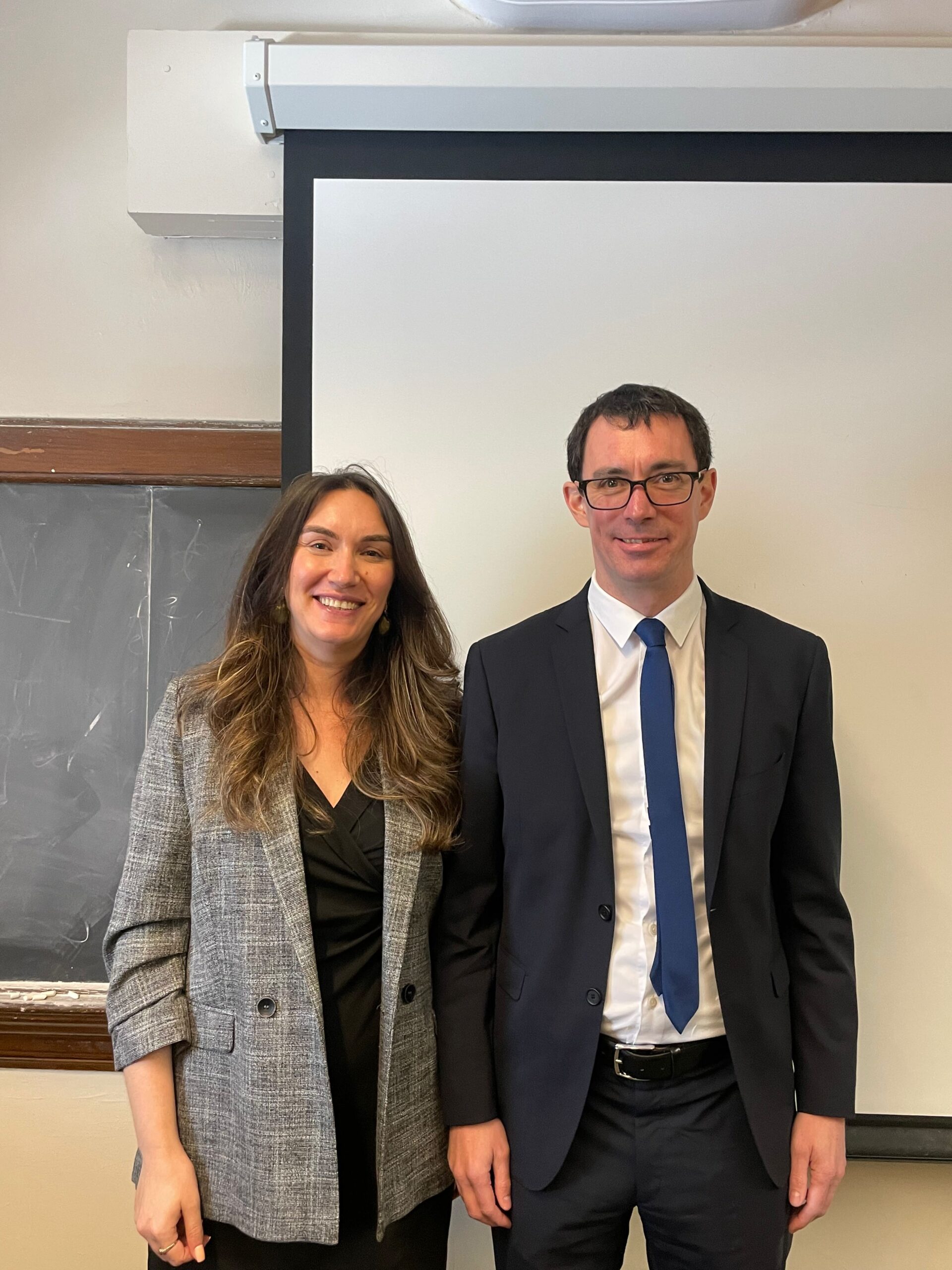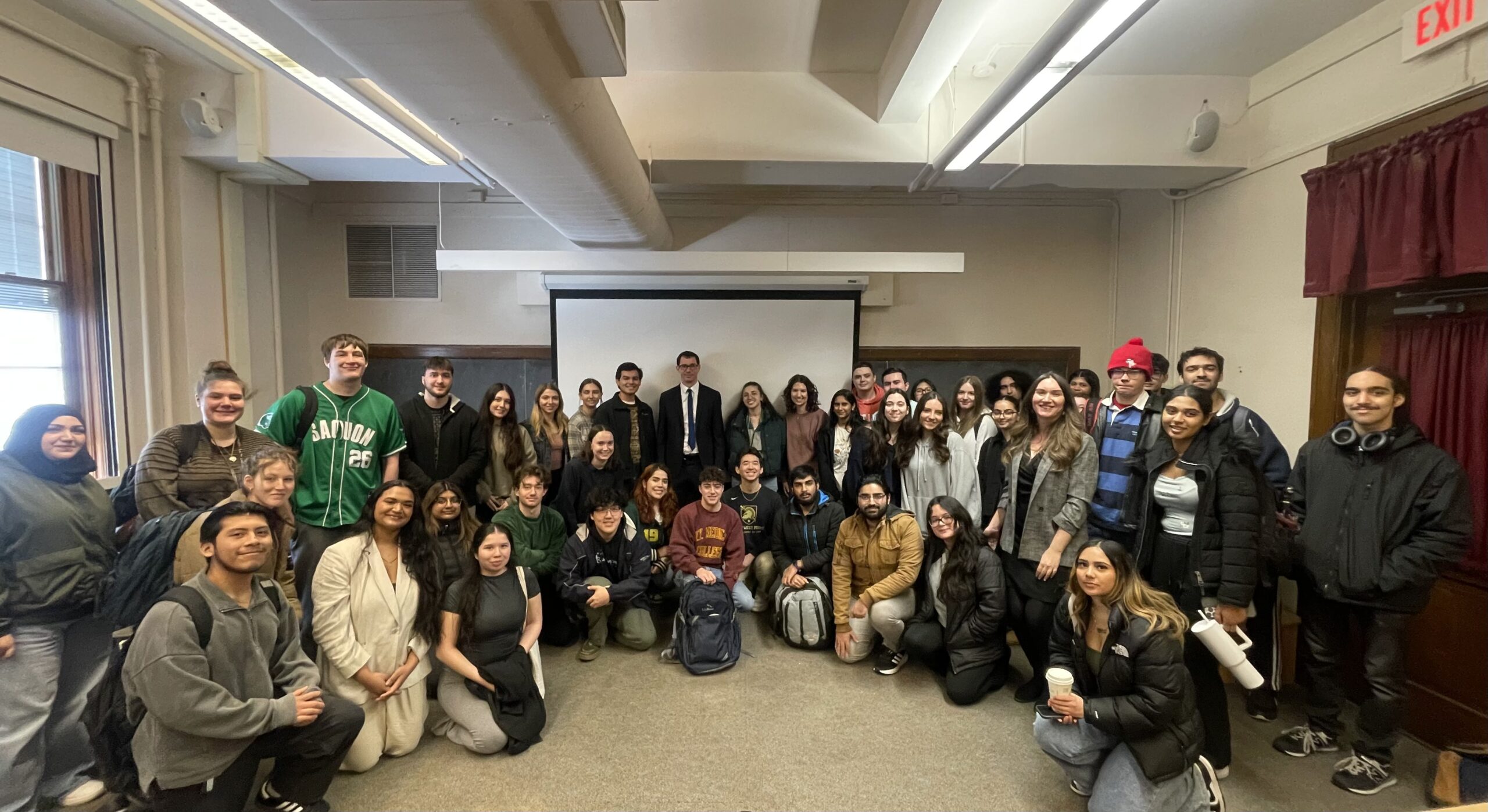When Dr. Selin Bengi Gumrukcu, Postdoctoral Associate in the Department of Political Science, began preparing for her European Politics course, she wanted to find a way to connect classroom learning with real-world political dynamics. That opportunity came to life when Ambassador Georg Sparber of Liechtenstein visited her class during the spring 2025 semester.

Dr. Gumrukcu first met Ambassador Sparber at a European Union (EU) organized event during the Republican National Convention in July 2024, while preparing to teach her European Politics course in the upcoming spring. When she learned that he had previously been a visiting PhD student at Rutgers, she saw an opportunity to reconnect him with the university and invite him to speak with her class. With help from Rutgers Global, Ambassador Sparber’s visit was coordinated to align with her course schedule.
“Hearing directly from a high-level diplomat allows students to bridge theoretical knowledge with real world events, deepening their understanding, and enhancing their practical applications.” she explained.
The European Politics course introduces students to the major political, social, and economic forces shaping contemporary Europe, with a strong focus on comparative analysis and the role of political institutions. Students engage with theories and concepts in political science and apply them to real-world events, from elections and EU policy shifts to transnational conflicts. Dr. Gumrukcu noted that the ambassador’s visit created a powerful link between the theoretical frameworks that students’ study and the current developments unfolding across the region.
The impact on her students was immediately visible. “They absolutely loved it,” Dr. Gumrukcu said. “The ambassador was very generous in taking as many questions as possible, and my students responded well. It felt like we could have been there for another 80 minutes.”
She noted that his connection to Rutgers made the experience even more personal for many in the room. Like the ambassador, sever al students shared that they were also philosophy majors, and by the end of class, a short line had formed as students introduced themselves, thanked him, and asked for photos.
Phineas Tripp, a student in the class, said, “I am very grateful for the opportunity to meet the Ambassador, and I thank him for taking the time to visit campus and speak to our class. It was a very informative experience, and I wish more of my classes hosted talks like this.”

Aayush Katyal, a first-year student, added, “One insight that stuck with me from Ambassador Sparber’s visit was the implications for foreign policy even in small European states like Liechtenstein. He talked about the impact that Russia’s invasion of Ukraine is having on smaller states, who are now also as a result facing sovereignty concerns…It was an honor to hear a first-hand account from someone who specialized in the field of international relations and who went to Rutgers at one point as well!”
Facilitating the Ambassador’s visit was a meaningful part of the semester for Dr. Gumrukcu, who found it rewarding to see her students genuinely engaged. While much of the course focuses on theories and case studies, she sees opportunities like this as an essential part of the learning experience and something students can’t get from a textbook alone.
Encouraged by her students’ enthusiasm, she’s already planning future visits from professionals working in international affairs. She hopes to bring in a journalist who has covered the war in Ukraine and a former district mayor from Turkey to discuss subnational diplomacy and European foreign policy. “In the past I had guest lecturers, other academics from Rutgers or elsewhere, but having a practitioner was really a different experience,” she said.
As global politics continue to shift, Dr. Gumrukcu is committed to evolving her classroom right along with it.
